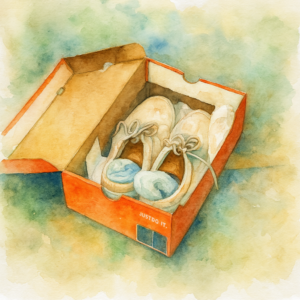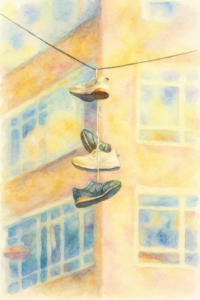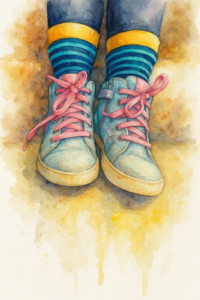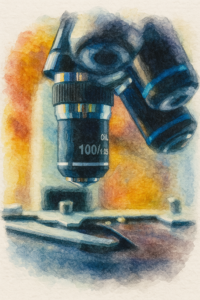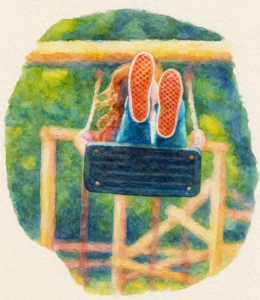Learn French with this clip from Les P’tits Bateaux. Find the full episode here. We do not own the content. The above audio sample and transcription is from Les P’tits Bateaux podcast. We do not own the content. Listen to the entire episode here. pretty much everywhere What’s opening up for you with this clip?…
Start quiz, type what you hear, then join the conversation.
Did you find this one challenging or easy? Did you hear something diffferent? What surprised you? What levels did you complete? Comment below and share what’s opening up for you with this quiz.
Learn French with this clip from Les P’tits Bateaux. Find the full episode here. We do not own the content.
The above audio sample and transcription is from Les P’tits Bateaux podcast. We do not own the content. Listen to the entire episode here.
pretty much everywhere
What’s opening up for you with this clip? Comment below with what was surprising, easy, challenging and/or interesting.
The snippet in English
Find a translation of this snippet here, how much of this did you hear?
Et alors, les salles, qui sont un peu partout maintenant, qui sont très à la mode — ça, ça date donc évidemment d’encore plus récemment.
Oui, alors c’est toujours le même mouvement, lié aux syndicats, comme la Fédération sportive et gymnique du travail, qui est essentiellement liée à la CGT, qui crée des SAE (Structures Artificielles d’Escalade), c’est-à-dire des blocs, et ensuite des murs.
Donc le premier mur en France, c’est dans un lycée de l’Essonne, à Corbeil-Essonnes, en 1981.
Et c’est un mouvement qui tout de suite devient très populaire.
C’est-à-dire qu’à la fin des années 1980, vous avez en gros deux cent murs d’escalade en France. Et maintenant, on en est à deux mille murs d’escalade, en gros.
And then there are the climbing gyms, which are pretty much everywhere now, which are very much in vogue – that, of course, dates from even more recently.
Yes, so it’s always the same movement, linked to unions like the Fédération sportive et gymnique du travail, which is essentially linked to the CGT, that creates SAEs (Structures Artificielles d’Escalade), i.e. boulders, and then walls.
The first wall in France was built in 1981 in Corbeil-Essonnes, a high school in the Essonne region.
The movement immediately became very popular.
By the end of the 1980s, there were roughly two hundred climbing walls in France. And now we’re up to two thousand climbing walls, roughly speaking.
The above translation from Deepl
What does “un peu partout” mean?
un peu partout — (a bit everywhere / all over the place)
On voit ces affiches un peu partout en ville.
(You see these posters all over town.)
Usage notes: Informal, frequently used in spoken French. Conveys scattered or widespread presence without precision.
Cultural note: Common in everyday conversation when describing things seen or felt in multiple places — from fashion trends to protest signs to weather. Adds a casual, imprecise tone.
What does “très à la mode” mean?
très à la mode — (very fashionable / trendy)
Cette couleur est très à la mode cet été.
(This color is very fashionable this summer.)
Usage notes: Informal and common in spoken French. Applies to clothing, trends, ideas, or anything currently popular.
Cultural note: Being à la mode is often associated with French fashion and Parisian style, but can also apply to food (e.g. les aliments à la mode) or tech trends. In Quebec, à la mode has similar meaning but is used slightly less frequently in casual speech.
Why “d’encore”?
In the sentence “ça, ça date évidemment d’encore plus récemment”, the structure “d’encore plus récemment” can be unpacked as follows:
- d’ = contraction of de, required after the verb dater de (to date from)
- encore plus = (even more)
- récemment = (recently)
So the phrase literally means: “from even more recently.”
Why “d’encore”?
- Dater de needs de to introduce the time reference:
→ Ça date de 1990. (It dates from 1990.) - When modifying with plus récemment (more recently), the whole comparative phrase still follows de:
→ Ça date de plus récemment. (It dates from more recently.) - Add encore to intensify:
→ Ça date d’encore plus récemment. (It dates from even more recently.)
So grammatically, encore is part of the comparative structure (encore plus récemment), and de remains because of the verb dater de.
Les P’tits Bateaux Podcast
Official synopsis: Les enfants posent des questions, des spécialistes leur répondent. Jeunes (et moins jeunes !) peuvent poser toutes les questions possibles et imaginables directement par message vocal via franceinter.fr, sauf pendant les vacances.
I recently discovered this podcast from InterFrance and love it. It’s kids posing questions and the host brings in experts to explain. And it’s aimed at young French kids, not French learners. That’s my favorite kind of content. Being for French kids is what makes it so good.
You’ve got real people (a kid, a host, and an expert), all speaking real French — no AI generated stuff here. The kid asks a question, and then an expert explains it in short, clear language. There’s a ton of repetition, natural turns of phrase, and just enough challenge to keep your ears working.
And because it’s meant for French-speaking kids, the adults naturally explain things simply but not condescendingly. You get exposed to rhythm, tone, interjections (bah, ben, alors), and full sentences — but also some real dialogue dynamics. And that’s gold if you’re trying to move from textbook filler to actually speaking and thinking in French.
Improving your French Listening Comprehension with Podcasts
On this site, fast spoken French is finally accessible to all levels. The tool break podcasts into short clips each set to transcription fill-in-the-blank practice. My favorite practice in class is always dictées. While they can seem overwhelming at first, the confidence boost and skills payoff for doing the work pays off. They’re perfect for anyone at any level, from advanced students to those just starting.
We use podcasts and our practice exercises to make it possible for anyone, anywhere to immerse in French with fun and ease. Join us and enjoy French, one short clip at a time. Let’s learn together!
Make the most of the site:
- Daily Podcast Listening: Start your day with a French podcast from our collection. Choose episodes that align with your interests to keep it engaging.
- Active Listening Practice: As you listen, try to pick out key phrases and vocabulary. Use our daily quizzes to test your understanding and reinforce learning.
- Repeat and Shadow: Listen to the same podcast segment multiple times. Try to mimic the pronunciation and intonation to improve your spoken French.
- Note-taking: Jot down new words or phrases you encounter. Review these notes regularly to enhance vocabulary retention.
- Reflect and Respond: After each episode, summarize the main points in French, either in writing or aloud. This helps in consolidating your learning and improving your expressive skills.
- Read More:
- True Beginner or A1 Learners: discover tips learning with podcasts at an introductory level.
- Discover all the podcast clips on FrenchIRL organized by level.
- Top Tips: Here’s how I make the most of my own site.
I created the French In Real Life project because I wanted to understand more than just my teacher and youtubers who cater to learners. I wanted to understand the French I hear in France. I hope you can benefit as much as I have. Become a supporting member for access to all clips.
What’s opening up for you?
Comment below with what’s opening up for you with this clip. What do you love about this? What was challenging? What was easy? Share your learning progress below!
Learn French with this clip from Les P’tits Bateaux. Find the full episode here. We do not own the content. The above audio sample and transcription is from Les P’tits Bateaux podcast. We do not own the content. Listen to the entire episode here. pretty much everywhere What’s opening up for you with this clip?…
Start quiz, type what you hear, then join the conversation.
Did you find this one challenging or easy? Did you hear something diffferent? What surprised you? What levels did you complete? Comment below and share what’s opening up for you with this quiz.


